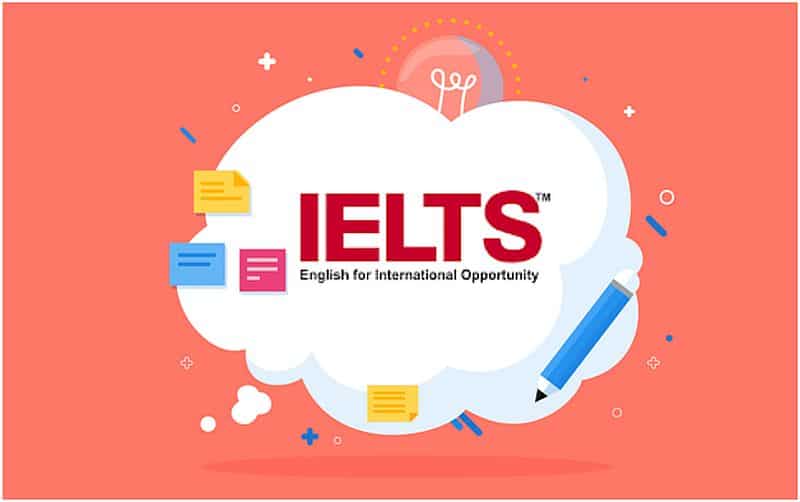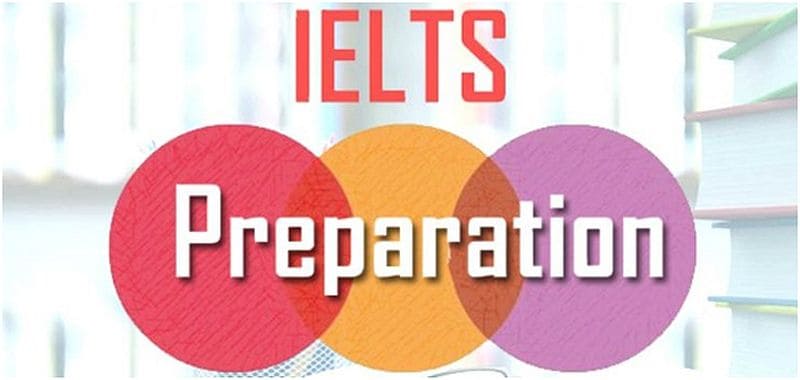An internationally recognized test that evaluates language competency is the International English Language Testing System (IELTS), which is taken by those who want to study, work, or move to countries where English is the primary language. Shortly before an exam, whether you have to study for an upcoming deadline or just need to sharpen your English, getting ready for the IELTS may be a difficult undertaking.
1. Clarifying Objectives and Targets
Setting and adhering to certain objectives is essential while studying for the IELTS quickly. Establish the score you must get and divide it into target scores for each part. For example, if you want to get 7.0 overall, you may strive for a 6.5 in reading, 7.5 in speaking, 7.0 in writing, and 6.5 in listening. With the aid of this analysis, you will be able to recognize your advantages and disadvantages and focus more time and energy on the areas that need work.
2. Recognizing the Format of the IELTS

It is essential to comprehend the IELTS test pattern prior to beginning a rigorous study process. The four primary components of the IELTS are Speaking, Reading, Writing, and Listening. It’s crucial that you be familiar with the format and evaluation standards for every component. The Academic and General Training versions have the same Speaking and Listening portions, but the Reading and Writing sections have somewhat different material and assessments. You may effectively use your time and energy to improve your weaknesses and strengthen your strengths by being aware of the format.
3. Make a Study Timetable.
When you don’t have much time to prepare, time management becomes crucial. Make a realistic study timetable that takes your energy levels and everyday obligations into account. Allocate designated time intervals for every IELTS component, making sure to cover every topic equally. To properly measure your progress, stick to a plan and make sure your daily or weekly objectives are attainable.
4. Put Listening Skills First
The IELTS Listening part evaluates your comprehension of spoken English in a variety of settings. Listen to a variety of accents, including British, American, Australian, and Canadian, if you want to do well in this part. Try to understand the conversation in English-language films, TV series, and documentaries even without subtitles. You may improve your listening comprehension and get more used to diverse words and accents by tuning into podcasts and news programs.
5. Make Use of Real IELTS Materials
Using real study resources is essential to preparing for the IELTS successfully. Official IELTS practice resources, including as books and sample exams, are available through the British Council, IDP, and Cambridge Assessment English. You may familiarize yourself with the question types, structure, and time limits of the test by using these resources, which closely mimic the real one. To further strengthen your abilities, a plethora of practice questions and mock exams may be found in online resources and mobile applications.
6. Boost Your Understanding of Reading

The IELTS Reading component assesses your comprehension and interpretation of textual materials. Regularly practice reading English newspapers, periodicals, and scholarly publications to enhance your comprehension skills in reading. Take note of the text’s organization, the author’s voice, and the primary concepts that are being discussed. Try to enumerate the main ideas of every piece and note the viewpoint or argument made by the author. You may hone the critical thinking abilities required for this level with the aid of this exercise.
7. Speaking with Self-Assurance
The Speaking portion of the IELTS evaluates your spoken English communication skills. Talk to native or proficient English speakers on a regular basis to develop your speaking confidence. Speak more confidently by filming yourself responding to typical interview questions or having a conversation about other subjects. Take note of your pronunciation, your flow, and your capacity for clear concept expression. To get helpful criticism, think about enrolling in online speaking courses or consulting knowledgeable IELTS coaches.
8. Gaining Writing Proficiency
There are two activities in the IELTS Writing section: Task 1 is describing visual information, and Task 2 is writing an essay on a predetermined theme. Practice writing essays on a variety of subjects and ask professors or seasoned IELTS instructors for comments if you want to do well in this area. Take special care to organize your writings logically, make your points clearly, and use a variety of language and grammatical constructions. In order to complete Task 1, become comfortable successfully expressing graphs, charts, and diagrams while highlighting important similarities and patterns.
9. Using Time Well During the Exam
During the test, it is crucial to establish efficient time management techniques in the limited preparation period. Every IELTS part has a fixed time restriction, so how you use your time may have a big influence on how well you score. To enhance your time management abilities and replicate exam settings, try doing lengthy practice exams. Give each reading passage in the reading portion a certain amount of time, and don’t spend too much time on any one question. Depending on your skills and shortcomings, split your time between Tasks 1 and 2 in the Writing area.
10. Examine and evaluate yourself

Review your development on a regular basis and evaluate your advantages and disadvantages. Maintain a notebook or digital diary where you may record your test results, the kinds of errors you make, and the things you still need to work on. Focus on your areas of weakness and modify your study strategy in light of this knowledge. Analyze your speaking recordings and practice essays as well to find areas that need work and reoccurring mistakes. Self-evaluation is an effective technique for focused progress.
11. Assume Exam Situations
It is essential that you replicate test circumstances as precisely as possible in your practice sessions in order to adequately prepare yourself both intellectually and emotionally for the IELTS. Locate a peaceful area, set a timer, and observe the designated window of time for every segment. Distractions should be removed, and a test center-like atmosphere should be created. By doing this, your nervousness will go down and your confidence will rise as you become more used to the pressure and time restrictions of the actual test.
12. Consult a Professional
Consider getting expert advice if you are under pressure to prepare for the IELTS on a short notice and feel overburdened. Numerous organizations and qualified IELTS tutor provide preparation classes, both in-person and online. These courses provide access to extra materials, professional comments, and organized lessons. Even though they could be expensive, they might be a wise purchase if you have a tight deadline and need to get a good score.
13. Create Test-Taking Techniques
You should work on your language abilities as well as creating efficient IELTS test-taking techniques. Consider listening for keywords and core concepts in the Listening part, since questions often center around these components. Practice using scanning and skimming strategies to find pertinent information quickly in the reading section. To successfully arrange your ideas for the Writing portion, make outlines before writing essays. Discover how to succinctly and effectively convey your views by practicing paraphrasing questions in the Speaking area.
14. Utilize Internet-Based Resources
For IELTS preparation, the internet is a veritable gold mine of information. There is a plethora of websites, forums, and social media groups devoted to IELTS discussion and assistance. Acquiring membership in these virtual groups may provide you with insightful advice, study resources, and chances to establish connections with other examinees. Furthermore, free IELTS practice exams and lectures may be found on podcasts and YouTube channels. Use these materials as an addition to your study schedule.
Article Submitted By Community Writer




